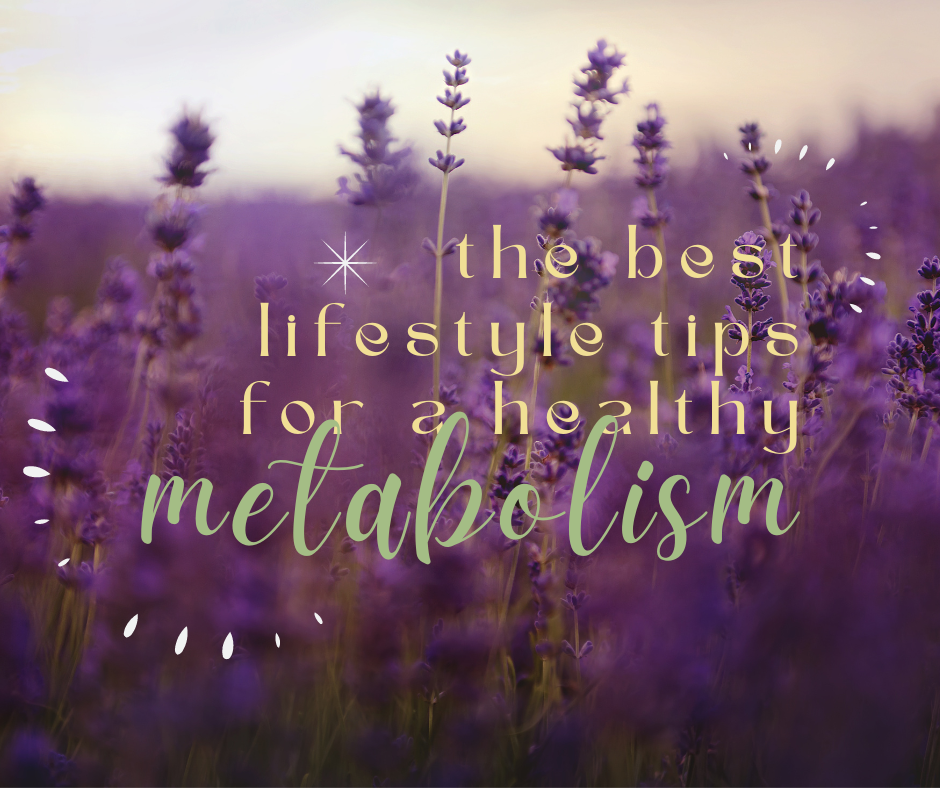

Metabolism refers to the chemical processes going on in your body. They help regulate your body so it runs and functions smoothly. Some metabolic functions include digesting the food you eat and converting it to energy, and building and replacing cells all over your body.
Due to things like aging, poor diet, lack of exercise, and such, our metabolisms can get affected. They slow down, causing you to feel fatigued, gain weight, get sick easier, and more. You really need to have a healthy lifestyle to ensure your body runs like clockwork.
In this article, we’ll be talking about the little things you can do to make sure your body is getting the energy it needs. Your body is precious and is the only one you’ve got—cherish it by taking good care of it and getting a healthy metabolism!
1. Eating After You Wake Up
Breakfast is the most important meal of the day. It gives you the much-needed fuel your body needs after a long night’s sleep. It gives you energy for the rest of the day and is also great for regulating your metabolism in a healthy way!
That’s because your metabolism is at its peak right after you wake up in the morning. Your thermic effect of food, which is the number of calories your body burns while digesting your body, is highest at this time. It represents 10% of your total daily calorie consumption, so it would make sense to spend most of it on the heartiest meal of the day.
2. Don’t Drink Coffee on an Empty Stomach
Drinking coffee is a lifestyle for some people. It’s a tasty drink that wakes you up and boosts cognitive function. It also has other health benefits like reducing the risk of Parkinson’s disease and improving heart health!
However, coffee can be aggravating to an empty stomach. It mixes unpleasantly with the acids there, and you’ll probably experience uncomfortable pain and bloating if you do that. In fact, coffee is one of the most common reasons for acid reflux. Gastroenterologists already recommend you don’t drink coffee when you have stomach problems—what more if you’re drinking that on an empty stomach?
So, treat your stomach well by only drinking coffee when there’s lots of food to neutralize things.
3. Eat Frequently
Your body loves regular routines. As much as possible, you need to eat regularly and on time. That means no skipping meals, no eating at odd hours of the day, no eating junk food as meals, and so on. That way, your body knows when to rev your thermic effect of food up.
Think of it this way: it’s like the difference between dining at a well-equipped and well-managed restaurant versus a restaurant that’s scrambling to get things ready even when you’re already at the table.
Additionally, experts say that eating healthy frequently helps boost metabolism. Dieting and fasting slow your metabolism down to conserve energy. If the restaurant didn’t have any customers, why would they keep the stove burning, after all?
Try eating three square meals a day and adding up to two snack times if necessary.
4. Avoid Refined and Processed Carbohydrates
Sources of carbohydrates such as whole wheat and grains are naturally full of fiber. Fiber is good for the body because it’s indigestible—when it passes through the stomach, the acids spend a long time trying to digest it for naught. That leaves you feeling fuller longer and helps you excrete healthy, bulky stools. It also helps maintain reasonable blood sugar and cholesterol levels.
However, refined and processed carbohydrates are stripped completely of fiber. What you’re left with are easily digestible sugars that go in and out of your stomach within a few hours. That’s why it’s so easy to eat a big bag of chips or cookies—they’re easily absorbed and digested. This makes you gain weight and also affects your metabolism in a not so healthy way.
Replace your processed carbohydrates with unprocessed ones.
5. Consume Dairy Products
Research suggests that consuming dairy products like milk, cheese, yogurt, and butter can speed your metabolism up. According to one study, it helps to oxidize your fat and use it to burn more energy without gaining weight. While more research is needed for this, what we have so far seems very promising!
Of course, dairy products aren’t safe for the lactose intolerant, so don’t feel bad if you can’t have them. Additionally, be wary of unpasteurized dairy products if you’re pregnant or immunocompromised. They play host to bacteria that can cause infections and wreak havoc on your body.
6. Have a Well-Balanced Meal
Protein boosts digestion because the thermic effect of food is a lot higher after you’ve consumed protein. Not only that, but it helps to build muscle and maintain muscle mass. This helps to improve and stabilize your metabolism.
You need to couple that protein with healthy carbohydrates as well. They need to be consumed together because the protein will help lessen the amount of sugar absorbed at one time. Rather than having a sugar high and then a sugar crash, you get a steady stream of energy that’ll power you through the day.
Lastly, fats are essential for balancing hormones, supporting bodily functions, and protecting your organs—all key to a healthy metabolism.
7. Treat Yourself
Imagine this: you’re eating the right foods and exercising regularly. Why aren’t you losing weight still?
The answer may be surprising to you: sleep. You need sleep because your body needs rest once in a while—at least six hours a day. Without sleep, your hormones will be all over the place. This causes disruption all over your body including your healthy metabolism.
Sometimes the best way to have an active metabolism is to not be active.
Additionally, reducing your stress levels is also helpful for your metabolism. Stress leads you to eat unhealthy foods, skip out on physical activity, and do other things that are bad for your body. Try to spend a little bit of me-time every day to read a book, do yoga, or enjoy a hobby.
8. Prioritize Foods Over Supplements
With how busy we are these days, it’s easy to just eat whatever you want and replace nutrients with supplements. It shouldn’t make much of a difference, right?
Wrong! Your body would much prefer absorbing nutrients through the food you eat because that’s what it was designed to do.
Remember what we said about your body liking familiar routines? The same case applies here. In some ways, your brain can’t recognize that you’re giving it nutrients because it didn’t come the way it expected it to come. You then might end up eating more and more trying to get nutrients the “right” way, so to speak.
It’s always better to eat food for nutrients, but don’t push yourself too. What’s important is you end up getting those nutrients!
9. Mine Minerals
Calcium, iron, magnesium, manganese, potassium, and other minerals are very important to your healthy metabolism and your body. They have three primary functions—they strengthen your bones and teeth, help manage the fluids and hormones in your body, and assist in turning the food you eat into energy.
Minerals are found in fruits, vegetables, meats, and other common food items. Some food items are more mineral-rich than others. For example, potatoes are loaded with potassium, lentils with iron, milk with calcium, and shellfish with manganese!
Conclusion
Eating while keeping your healthy metabolism in mind is so uplifting and encouraging. You just know that your body is all the better for it because your metabolism is working hard to manage your body. It’s kind of like being the leader of a team or company—if you treat them well, they’re going to work extra hard to bring in progress!
We hope this article has helped you connect with your body and understand what it needs to not just survive but live life to the fullest.

